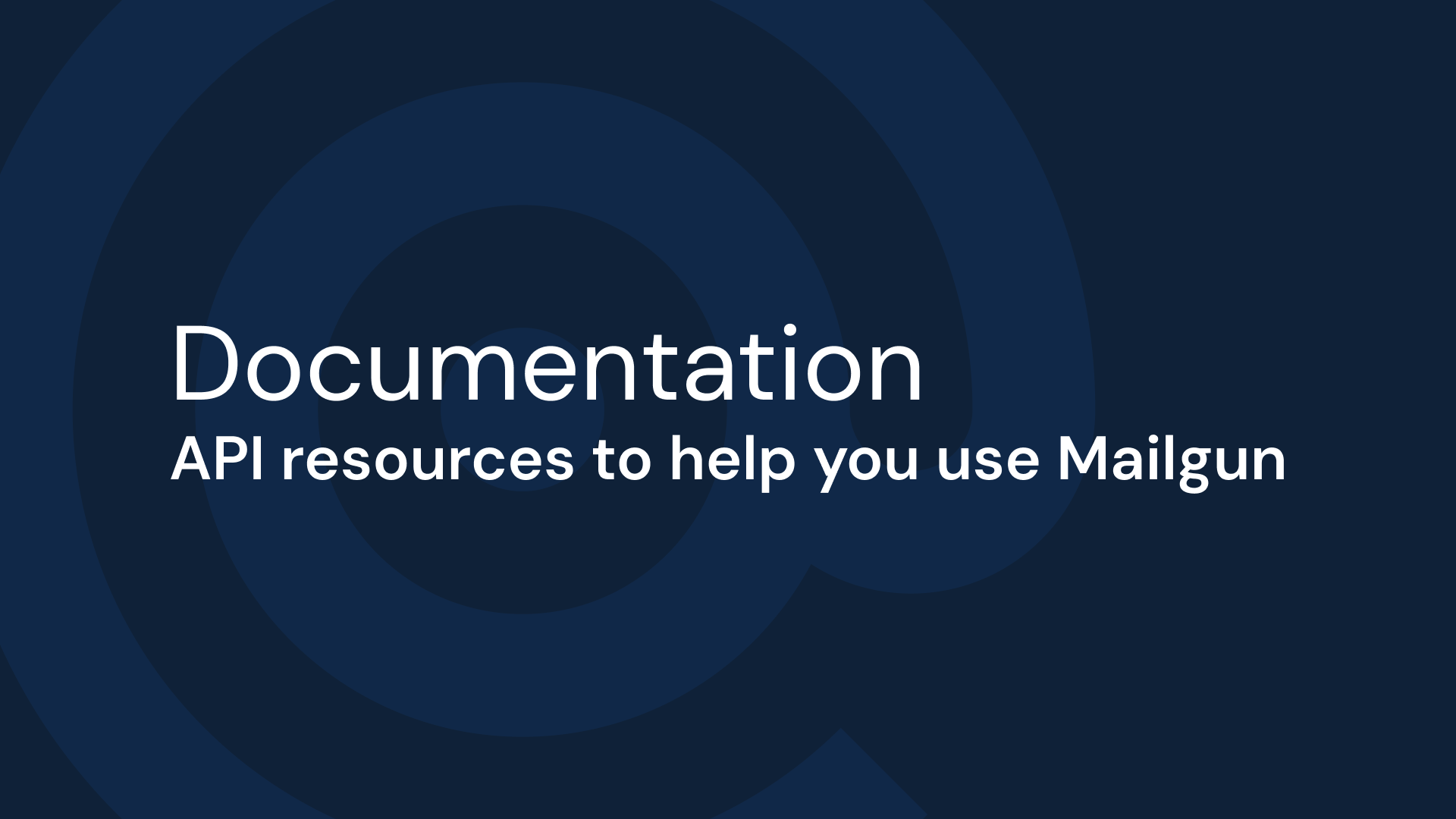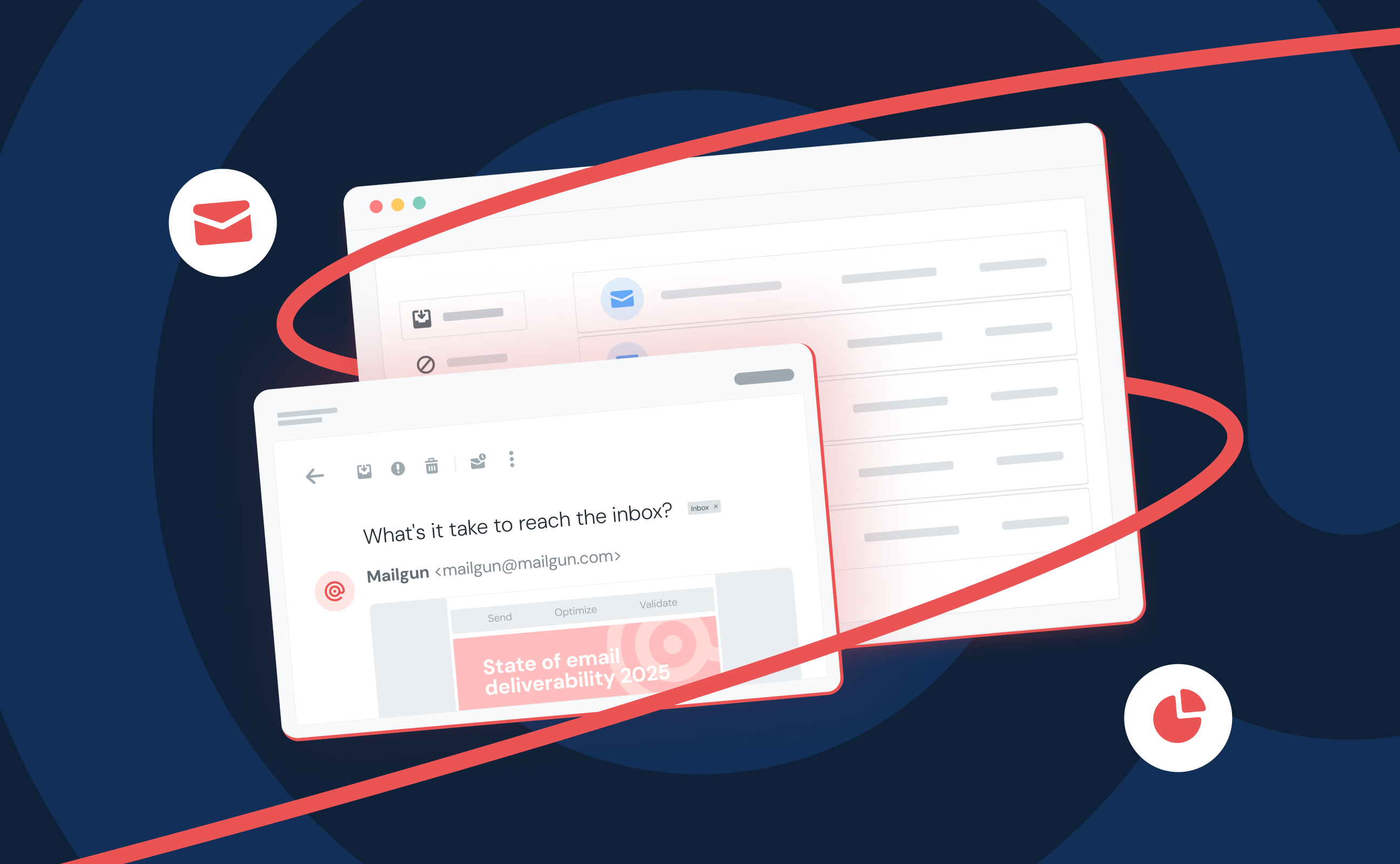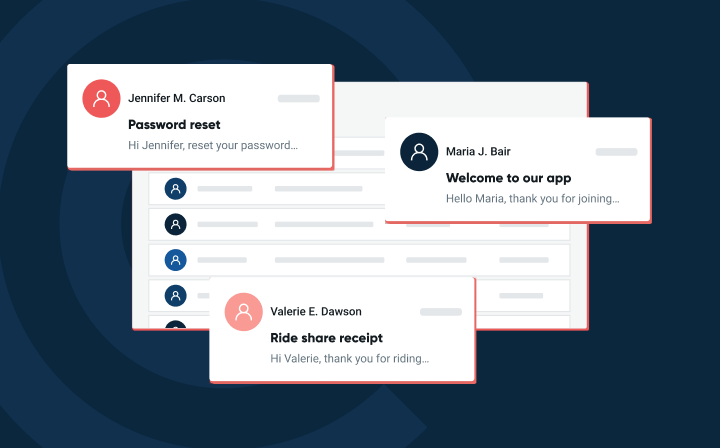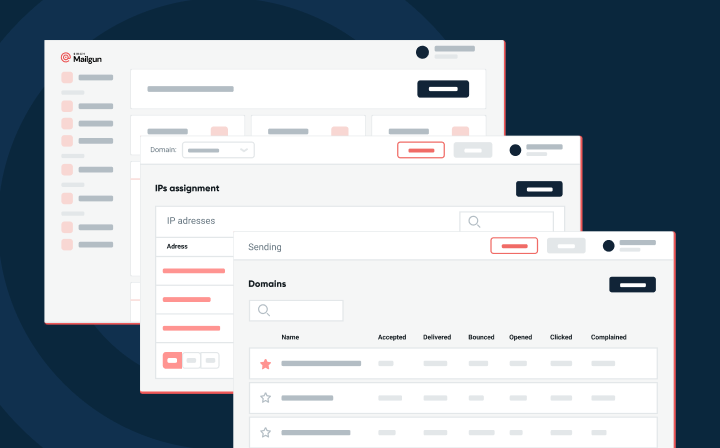Home
Mailgun Blog
Deliverability category
Domain reputation or IP reputation: Which one does Gmail care about more
Deliverability
Domain reputation or IP reputation: Which one does Gmail care about more?
Mailbox providers weigh factors like IP and Domain reputation to make a final delivery decision. So what about Gmail? Read more...
PUBLISHED ON
We often compare email reputation to a credit score. The better your sender score, the more likely your email will get delivered.
That’s because your reputation is one of the factors mailbox providers look at to determine whether or not your email belongs in the inbox. Each inbox service provider (ISP) acts as a gatekeeper and has its own algorithm that weighs factors like reputation score and blacklists to make a final delivery decision. So, if you’re delivering just fine to Yahoo but landing in the spam folder with Hotmail, the different mailbox provider algorithms could be partially to blame.
Gmail tends to be the number one mailbox provider our customers’ recipients use, so you’re probably wondering what Gmail cares about. How does your sending reputation enter into their email delivery decision?
The two types of email reputation
Before we dive in, let’s talk a little bit about your IP and sending domain. Basically, there are two types of email reputation that can affect your sending: 1) IP Reputation and 2) Domain Reputation. These are calculated separately, but they’re two sides of the same coin and play a big role in your overall sender reputation.
IP reputation
Email messages are sent from a computer or server that has a unique identifying address, which are known as IP addresses.
Since IPs can easily be tied back to senders, it’s a straightforward identifier to use in determining your reputation. And, as you would expect, when your reputation is factored on the IP level, it’s called IP reputation. With IP reputation, variables like whether you’re using a brand new IP address, a shared IP, or a dedicated IP can have a big impact.
If you’re sending from a shared IP, there’s a chance your sending IP could have a poor reputation due to the bad actions of other email senders utilizing that IP. When this happens, some mailboxes might decide to block you. That’s why organizations with high volume sends usually choose to send from a dedicated IP. The advantage? A dedicated IP address isolates your email reputation from email senders with poor email practices. If you’re interested in moving to a dedicated IP for better deliverability, you can add one to your account here or contact our support team for more info.
Domain reputation
So if your IP reputation is factored on the IP level, your domain reputation is factored on the – you guessed it – domain level.
When you get set up to send in Mailgun, you add the DNS records for each of your domains so that your emails are clearly sent from that domain. That way, the domain reputation of yourdomain1.com can be kept separate from the domain reputation of yourdomain2.com.
Things like domain age, how the domain identifies across the web, and whether it identifies in the entertainment, advertising, finance, or education industries can all impact your domain reputation.
Since you could have hundreds of different domains sending on the same IP, domain reputation is more pointed than IP reputation.
Establishing a reputation from scratch
One important thing to mention is that it takes some time to establish a reputation. A relatively new domain or IP won’t have an email reputation attached (and cases in which the domain has just been purchased, might even have a poor reputation assigned), so you’ll want to start sending a few emails at a time and slowly ramp up to higher volumes.
That being said, you can’t start an email marketing campaign with a massive list and a brand new IP and expect to succeed. If you start sending to a million people (and chances are a few spam traps) on your list on day one, the mailbox providers are unlikely to deliver all those messages. They have to get to know you first, so you’ll need to warm up your reputation by taking it slow.
Does Gmail care more about your domain reputation or IP reputation?
As we talked about before, mailbox providers often have a different set of filtering systems that can prevent your email from landing in the inbox. Some of these weigh IP reputation more heavily while others pay more attention to domain reputation.
For Gmail, we have reason to believe that domain reputation matters more.
Why? Because a domain is a more precise indicator of sending history. IPs can vary based on sending servers and providers, but your sending domain stays with you. In the following video, Nick Schafer of Sinch Mailgun, lays this out in more detail.
Since not all mailbox providers use the same metrics, it’s generally good practice to evaluate both your IP and domain reputation prior to sending to ensure your emails have the best possible chance of getting delivered. Gmail makes it easy to keep an eye on your IP and domain reputation through their Postmaster Tools, which we highly recommend you sign up for if you’re sending to Gmail.
If you feel like your domain or IP reputation could use some improvement, you might want to look into Mailgun’s Deliverability Service. This pairs you with a dedicated email expert who proactively monitors your account for performance issues and assists with reputation management and blacklists, etc. They’re your best point of contact for anything email deliverability.
Webinar: Best practices for email
Have you updated your email strategy for 2018? We all want better deliverability, but there are a few small things you need in place in order to achieve it. Watch our webinar that covered all of the strategies needed to succeed in 2018 with our host, Nick Schafer -Mailgun’s resident deliverability expert.
You’ll learn: 1) How to track and improve your reputation as a sender, 2) The dos and don’ts of building and maintaining your lists, 3) How to improve your email engagement and more.







